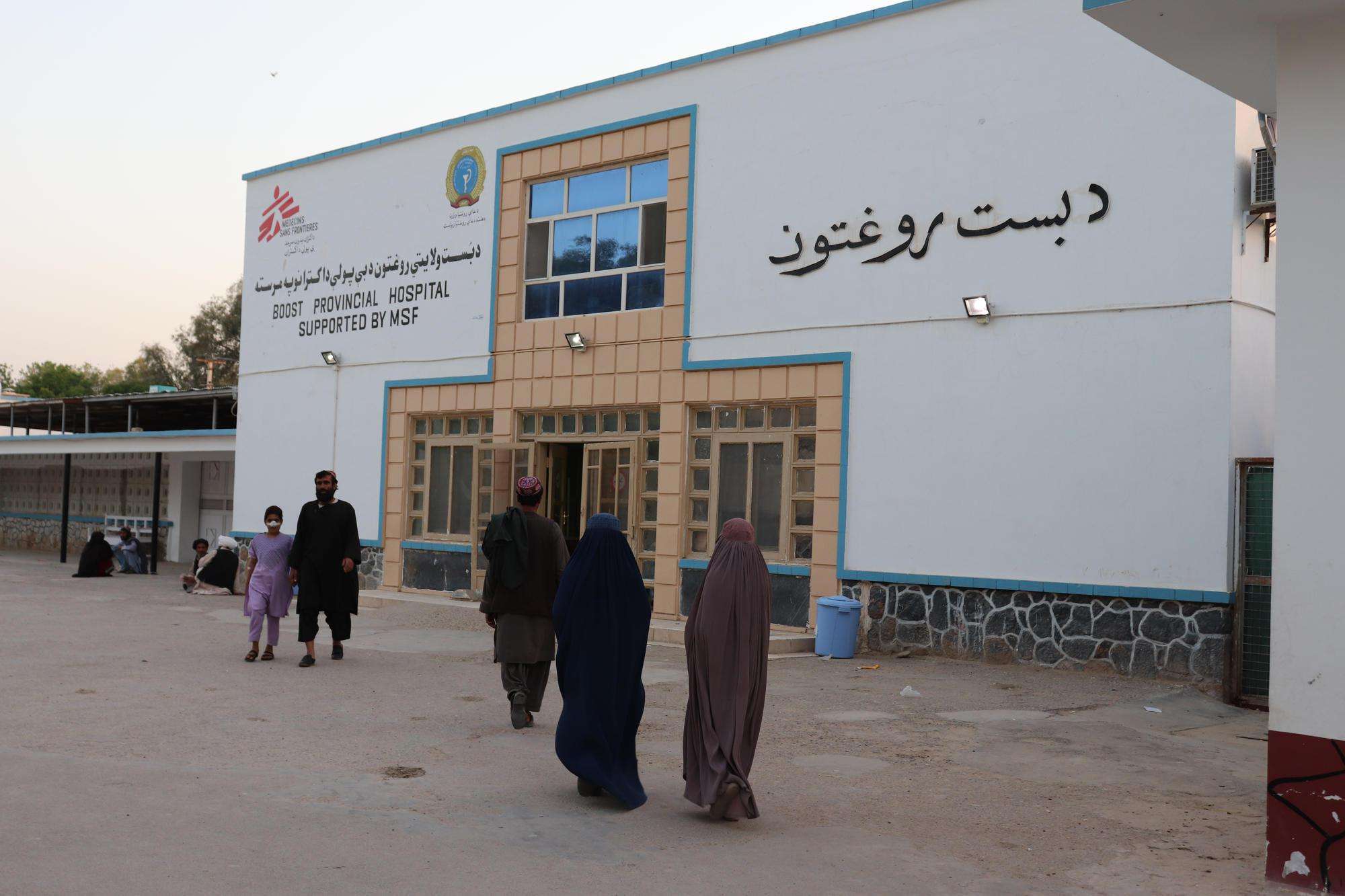Amid renewed fighting in Afghanistan’s Helmand province, Doctors Without Borders/Médecins Sans Frontières (MSF) teams are witnessing the overwhelming personal losses suffered by civilians caught in the conflict. The intense clashes that erupted in and around Lashkar Gah city on October 11 show no signs of abating. The main trauma hospital for war-wounded people, run by another medical organization, remains under pressure from the influx of injured patients. MSF supports the nearby Boost provincial hospital, which has been serving as an overflow facility since Sunday night to respond to the needs.This is a firsthand account from Marianna Cortesi, Boost hospital coordinator.
Of the 52 war-wounded patients we received between October 11 and 14—all with stories as devastating as their injuries—two in particular asked me to share their experiences. Beyond the medical care they received, I feel an equal responsibility for ensuring their voices are heard.
I sat with Safia* this morning. Her strength and resilience were still present, but I knew that her aching and now hollow belly would be a lifelong reminder of the baby shot dead in her womb.
Safia was seven months pregnant after four years of anticipating her firstborn. She was so happy about her pregnancy, and since the moment she became pregnant her entire family had carefully watched over her. Everyone was looking forward to the delivery. It was so close now—so much so that they started laying out the little clothes for when their new arrival would be welcomed home.
On Sunday, Safia was chatting outside her house. The weather is changing in Afghanistan. It’s a little cooler and less comfortable to be outside, but on that day more than the weather was changing. The previous day, people in Safia’s village heard the sounds of fighting getting closer. And today, maybe too close. [Standing on the street,] Safia felt a sudden pain. A stray bullet had pierced both of them—mother and unborn child.
And so the journey began—a rush to the hospital before it was too late. But rushing isn’t easy around Lashkar Gah, and the fighting forced Safia’s family to take a longer route to the main trauma hospital.
After travelling for hours, Safia was referred from the first health facility they reached to the MSF-supported Boost provincial hospital. This is where we crossed paths. After a lifesaving Caesarean-section, Safia is now stable. But without her child.
On Monday, the family went back to their village to bury the baby. Safia remained with us in intensive care. As the family gathered for the funeral ceremony, they had to flee from more shooting. They made their way back to the hospital to wait for Safia to be discharged.
Safia’s grief in the ward consumes me—in the womb or in the grave, her firstborn had no peace.
I also sat with Zina this morning, in the female surgical ward. Her breast is bandaged from where she was shot by a stray bullet that narrowly missed her eight-month-old baby. She was breastfeeding at the time [of the incident]. When Zina sought care, she had to leave her baby at home with her oldest child, who is still small. I think of this, a child left at home to care for a baby while your mother receives treatment for a gunshot wound.
As I got up to go, Zina asked me, “When can I go home? I need to feed my baby.”
*Names have been changed to protect the identity of the patients.





